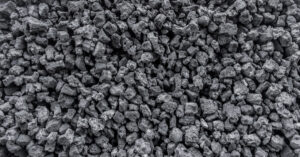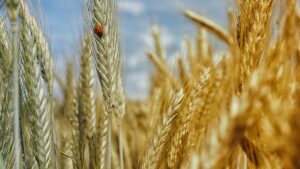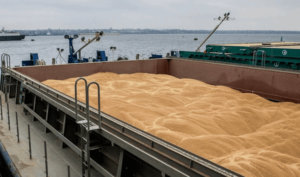
In 2024, Ukraine increased imports of coke and semi-coke in physical terms by 2.01 times compared to 2023, up to 661.487 thousand tons.
According to statistics released by the State Customs Service (SCS), coke imports in monetary terms increased by 81.9% to $235.475 million during this period.
Imports were mainly from Poland (84.76% of supplies in monetary terms), Colombia (7.74%) and Hungary (2.69%).
Last year, the country exported 1,601 thousand tons of 84.76% coke for $368 thousand to Moldova (99.18%) and Latvia (0.82%), while in January, March, October and November 2024, there were no exports, while in 2023, exports amounted to 3,383 thousand tons for $787 thousand.
As reported, in 2023, Ukraine reduced imports of coke and semi-coke in physical terms by 8.5% compared to 2022 – to 328.697 thousand tons, while imports in monetary terms decreased by 25.8% to $129.472 million.
In 2023, Ukraine exported 3,383 thousand tons of coke, down 12.3% compared to 2022. In monetary terms, it decreased by 22.2% to $787 thousand.
Exports were carried out to Moldova (100% of supplies in monetary terms), while imports were mainly from Poland (88.47%), Colombia (7.72%) and the Czech Republic (3.15%).

In 2024, imports of tin and tin products increased by 16.9% to $3.188 million (in December – $338 thousand). Exports of tin amounted to $389 thousand, compared to $159 thousand in 2023, with no exports in December.
Tin is used mainly as a safe, non-toxic, corrosion-resistant coating in its pure form or in alloys with other metals. The main industrial applications of tin are in white tinplate (tinned iron) for food containers, in solders for electronics, in house pipelines, in bearing alloys, and in coatings made of tin and its alloys. The most important tin alloy is bronze (with copper).

In 2024, Ukraine reduced exports of processed pig iron in physical terms by 3.4% compared to 2023, to 1 million 290.622 thousand tons.
According to statistics released by the State Customs Service (SCS), pig iron exports in monetary terms decreased by 6.1% to $500.341 million during the period under review.
At the same time, exports were carried out mainly to the United States (72.64% of supplies in monetary terms), Turkey (8.03%) and Italy (7.30%).
For the whole of 2024, the country imported 38 tons of pig iron worth $90 thousand from Germany (in January, March, May, June, July, August, October and November, there were no imports), while in the same period in 2023, it imported 154 tons of pig iron worth $156 thousand.
As reported, in 2023, Ukraine decreased exports of processed pig iron in physical terms by 5.8% compared to 2022 – to 1 million 248.512 thousand tons, while exports in monetary terms decreased by 26.2% to $471.467 million. Deliveries were made mainly to Poland (51.91% of supplies in monetary terms), Spain (21.41%) and the United States (13.15%).
In 2023, Ukraine imported 154 tons of pig iron worth $156 thousand from Germany (42.31%), Brazil (41.67%) and Poland (16.03%), compared to 40 tons of pig iron worth $23 thousand in 2022.

“DTEK Renewables has launched the issuance of carbon credits that can be purchased by businesses to reduce their carbon footprint in the production of products.
According to the company’s website, one of DTEK Renewables’ enterprises has been certified to issue carbon credits by the International Carbon Registry (Iceland). According to the registry’s methodology, one carbon credit in Ukraine corresponds to a reduction of 1 ton of CO2 emissions due to the production of 1.56 MWh of renewable energy.
Thus, the “clean” electricity produced by the company in 2019-2023 helped to avoid CO2 emissions of 880 thousand tons.
“We recently issued the first guarantees of origin that can be purchased by Ukrainian businesses. Now, by issuing carbon credits, we are entering the international level and calling on foreign businesses to support the renewal of Ukraine’s energy sector. After all, the proceeds from the sale of carbon credits go directly to the development of renewable energy capacities,” said Oleksandr Selishchev, CEO of DTEK Renewables.
The company reminded that carbon credits can be used by international companies to obtain the right to emit greenhouse gases or compensate for previously produced emissions as a result of their activities. This tool is used to comply with environmental requirements and achieve sustainable development, including carbon neutrality.

In 2024, USAID’s Agricultural and Rural Development Program (USAID Agro) supported 1200 Ukrainian agricultural producers who were able to receive over UAH 1.14 billion through a number of financial instruments, the program’s press service reported on Facebook.
“With the beginning of the full-scale invasion, it became clear that farmers need financial products offered by the non-banking sector more than ever: commodity lending, leasing (including leaseback and factoring), and agricultural installments,” the statement said.
USAID Agro said that in 2024, farmers received more than UAH 1 billion in commodity loans for the purchase of seeds, fertilizers and plant protection products with deferred payment until harvest from seven partner organizations – Adama Ukraine LLC, Ukravit LLC, Zakhid Agribusiness LLC, Makosh LLC, Agroresurs LLC, Himagro LLC, and Agro Arena LLC. Farmers could pay off the loan in cash or grain. In most cases, no hard collateral was required.
In 2024, agrarians also received UAH 44 million in financing through WEAGRO, a specialized online service from Activitis, a financial company. Without direct interaction with the financial company, farmers received an installment decision within 30 minutes and payment under the contract within two hours.
In addition, USAID Agro supported the Digital Leasing in Three Clicks in Three Days platform from ESKA Capital, which financed farmers for almost UAH 100 million as part of a joint project.
“The uniqueness of this initiative is the leasing of equipment for up to 15 years, leaseback, financing for farmers bordering the combat zone; as well as the absence of bureaucratic obstacles and the ability to draw up contracts online,” the program reminded.
USAID Agro promised to support these projects in 2025 and prepare two more for launch. These are the development of secondary circulation of commodity loans, as well as financing of agricultural producers through agricultural notes.

In 2024, Ukraine and Egypt increased their trade in agricultural products to $1.4 billion, up 32% from a year earlier, Minister of Agrarian Policy and Food Vitalii Koval said following a meeting with the newly appointed Ambassador of the Arab Republic of Egypt to Ukraine Barakat Ali Elleiti.
The Minister clarified that the main Ukrainian exports were corn, wheat, soybeans, and vegetable oil. In turn, Ukraine imports citrus fruits, potatoes, nuts, etc. from Egypt.
“The parties discussed the potential for increasing Ukrainian-Egyptian cooperation in the field of agriculture, as well as the issue of reducing the deferral of payments to Ukrainian exporters for the delivered goods, the abolition of some trade restrictions and customs duties, and the possibility of creating a Ukrainian food hub in Egypt,” he wrote on Telegram.
According to Koval, cooperation between Ukraine and Egypt should be mutually beneficial for both countries.
The parties agreed to set up a joint working group to develop a roadmap to address current issues.